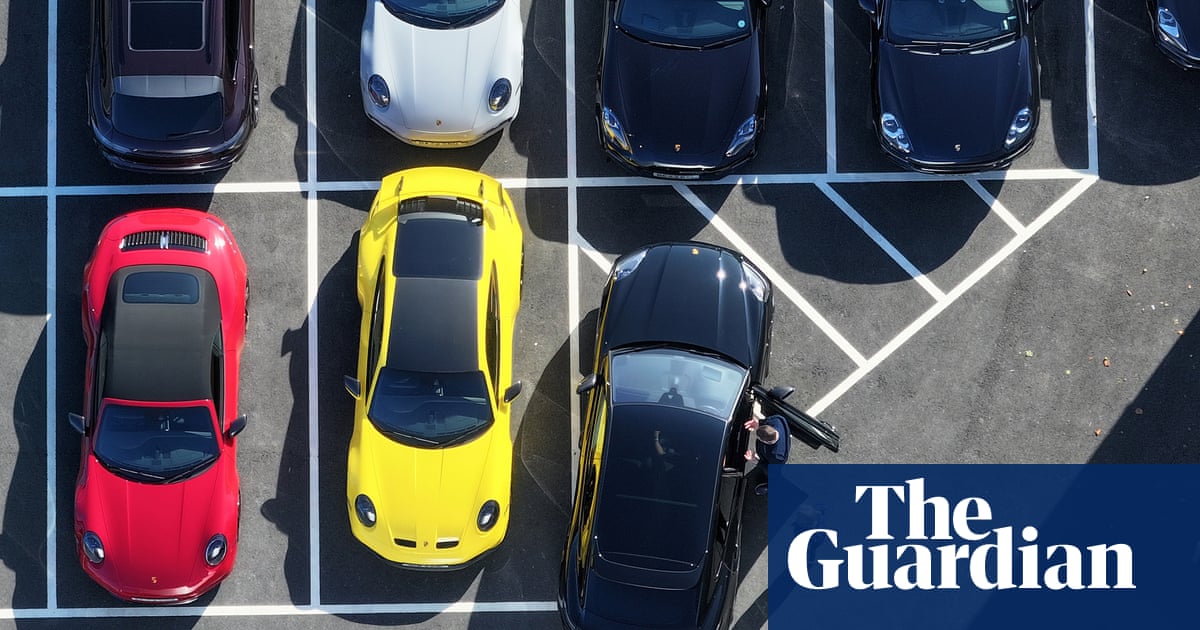First-half sales of new cars in UK pass 1m for first time since before Covid

Carmakers have sold more than a million cars in the UK in the first half of the year for the first time since before the coronavirus pandemic as the sector gradually recovers from years of turmoil.
Sales in the first six months of 2024 rose by 6% to just over 1m, compared with 949,000 in the same period last year, according to the Society of Motor Manufacturers and Traders, the UK industry’s lobby group.
The share of electric cars hit 19% in June, its highest this year.
The SMMT suggested that the industry would sell about 2m cars over the year, also for the first time since 2019. Its chief executive, Mike Hawes, said that annual total would be “a bit below par” but that the recovery was a relief for the industry after years of struggles.
However, the growth was “almost entirely business and fleet sales” rather than private buyers, Hawes told BBC Radio 4’s Today programme. “Given that most people buy with some kind of finance, with inflation high and interest rates high, it has made the cost of purchase more expensive.”
Sales to private buyers fell for the ninth consecutive month, and were down 12% in the first half of the year compared with 2023.
Annual car sales peaked in 2016 at a record 2.69m. After that they fell for three years – albeit remaining well above 2m – until they plunged in 2020 as the pandemic forced factories to pause production and prevented people from visiting showrooms for months. That was followed by years of supply-chain turmoil.
Sales picked up to 1.9m in 2023, although that was still the weakest barring the pandemic years since before the global financial crisis of 2008.
The rise of electric vehicles has also been a complicating factor for the industry, which must now sell more zero-emissions cars or else face steep fines. However, European manufacturers have complained that they are struggling to find buyers for their electric cars, which they have priced higher than petrol or diesel equivalents in order to cover the cost of batteries. Vauxhall, Peugeot and Fiat’s owner Stellantis last week threatened to close its UK factories because of the so-called zero emission vehicle (ZEV) mandate.
The market share of pure battery electric new cars remained about the same in the first half of 2024 as last year, at 16.6%, the SMMT said. In the first half of 2023 it was 16.1%.
after newsletter promotion
Hawes said that “we have seen is something of a plateau flattening out” in demand for electric cars.
“When these vehicles were first on the market, there really was high demand for them, because those were the early adopters,” he added. “We need to get that from the early-adopter phase into the mass market. That is never going to be smooth.”
Carmakers had sold 827,000 cars in the first five months of the year, a 7% increase on 2023.
Related
Why investing in women is a vital next step for…
Get Nadine White's Race Report newsletter for a fresh perspective on the week's newsGet our free newsletter from The Independent's Race CorrespondentGet our fre
Business secretary signals major shift on electric car policy to…
In a determined effort to retain Nissan’s manufacturing presence in Britain, Business Secretary Jonathan Reynolds has vowed to implement “substantial c
Joint Statement: Business Secretary and Fujitsu Services Ltd
Business and Trade Secretary Jonathan Reynolds today (Friday 7 March) met chiefs for Fujitsu in Tokyo to begin talks over the cost of redress for victims of th
UK foreign secretary backs multilateral defence funding for Europe
UK foreign secretary David Lammy has said that a new multilateral fund will be needed to secure Europe’s defence as he confirmed that Britain is “open to”













